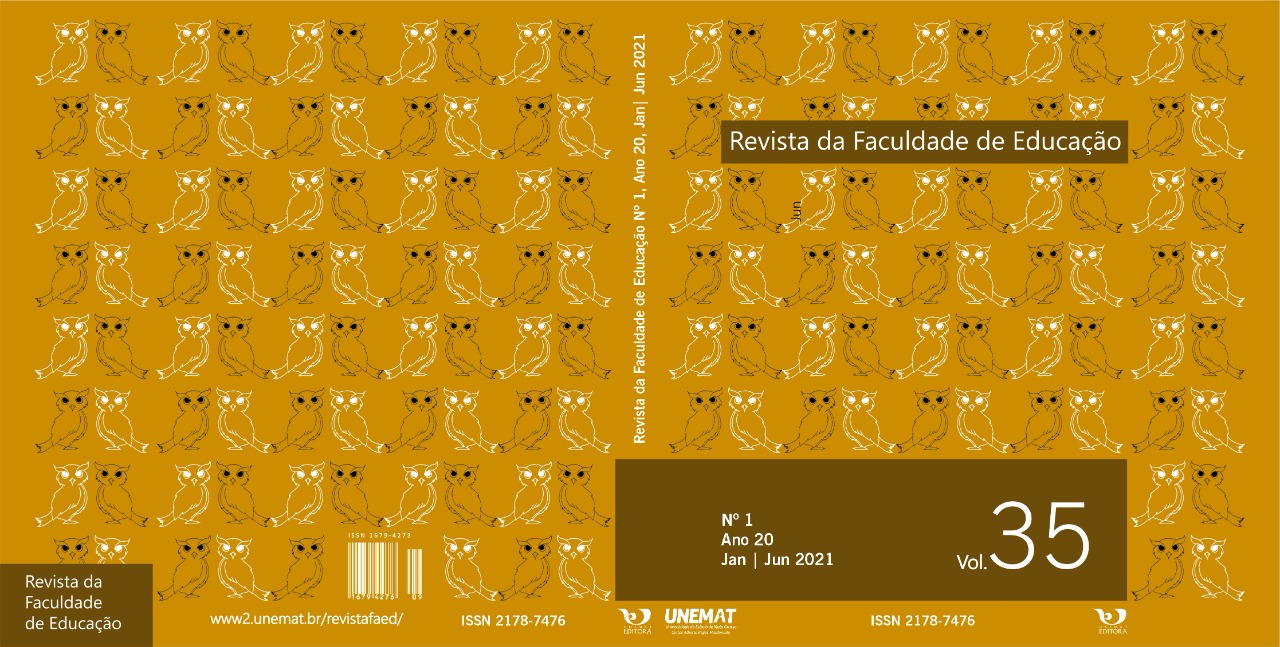WHEN STUDENTS GO TO EJA’S SCHOOL: DIFFICULTIES ENCOUNTERED
DOI:
https://doi.org/10.30681/21787476.2021.35.153174Keywords:
EJA School, Student, DifficultiesAbstract
This study originated from a survey carried out to analyze the main problems that the public of Youth and Adult Education - EJA encounter and impact on their permanence in educational spaces when they decide to enter this type of education. We bring as a problem: what are the problems encountered by EJA students when they go to school? The main objective of this investigation was to analyze the main problems that arise when EJA students go to school. Through a qualitative approach and an autobiographical analysis, we seek to understand the trajectory of students in the PROEJA Workplace Safety course that takes place at the Federal Institute of Education (IFBA), Campus Santo Amaro. The results presented were the following: we observed teachers without the necessary training to work with EJA; students report that the EJA offered in the federal technical education institution is different from the offer they received in municipal or state education; the social sense of the modality is not dealt with in the classroom.KEYWORDS: EJA School, Students, Difficulties.
Downloads
References
CHARLOT, Bernard, (2000). Da relação com o saber: elementos para uma teoria. Porto Alegre: Artemed.
FERRAROTI. F. Sobre a autonomia do método biográfico. In: NÓVOA, António; FINGER, M. (Orgs). O método (auto) biográfico e a formação. Natal, RN: EDUFRN; São Paulo: Paulus, 2010.
FREIRE, P. Pedagogia do oprimido. 56. ed. Ver. E atual. Rio de Janeiro: Paz e Terra, 2013.
HADDAD. S., DI PIERRO. M. C. A EJA na agenda nacional de políticas educacionais: expectativas e frustrações da primeira década do terceiro milênio. Cad. Cedes, Campinas, v. 35, n. 96, p. 197-217, maio-ago., 2015
IBGE – INSTITUTO BRASILEIRO DE GEOGRAFIA E ESTATÍSTICA. PNAD Contínua 2017: número de jovens que não estudam nem trabalham ou se qualificam cresce 5,9% em um ano – São Paulo. Rio de Janeiro, 2017(estatísticas sociais)
MACHADO, Maria Margarida. A educação de jovens e adultos após 20 vinte anos da Lei nº 9.394, de 1996. Revista Retratos da Escola, Brasília, v. 10, n. 19, p. 429-451, jul./dez. 2016. Disponível em: http://www.esforce.org.br/
MINAYO, M. C. S. O desafio do conhecimento: pesquisa qualitativa em saúde. São Paulo: Hucitec, 2013.
MINAYO, Maria Cecília de Souza. O desafio do conhecimento. 11 ed. São Paulo: Hucitec, 2008.
MINAYO, M. C. S. Pesquisa Social: Teoria, método e criatividade. Rio de Janeiro: Vozes, 2016. (Série Manuais Acadêmicos). 95p.
NÓVOA, A.; FINGER, M. (Org.). O método (auto) biográfico e a formação. Natal, RN: EDUFRN; São Paulo: Paulus, 2010.
PAIVA, Jane. Aprendizados ao longo da vida: sujeitos, políticas e processos. Rio de Janeiro: EDUERJ, 2019. 228p.
PASSEGGI, Maria da Conceição. Narrar é humano! Autobiografar é um processo civilizatório. In: PASSEGGI, Maria da Conceição; SILVA, V. B. (Orgs.). Invenções de vidas, compreensão de itinerários e alternativas de formação. São Paulo: Cultura Acadêmica, 2010.
SANTOS, Boaventura de Souza. O fim do império cognitivo: a afirmação das epistemologias do Sul. BH: Autêntica Editora, 2019. 478p.
SUESS, R; LEITE, C. Paulo Freire e humanismo em educação: contribuições a partir de uma perspectiva geográfica. Geosaberes, Fortaleza, v. 8, n. 16, p. 94-105, set./dez. 2017.
Downloads
Published
Issue
Section
License
Copyright (c) 2021 Ana Paula Santos Vasconcelos, Antônio Amorim, Maria da Conceição Alves Ferreira

This work is licensed under a Creative Commons Attribution-NonCommercial 4.0 International License.
Licença CC-BY-NC
"Revista da Faculdade de Educação adota a licença Creative Commons BY-NC do tipo "Atribuição Não Comercial". Essa licença permite, exceto onde está identificado, que o usuário final remixe, adapte e crie a partir do seu trabalho para fins não comerciais, sob a condição de atribuir o devido crédito e da forma especificada pelo autor ou licenciante".





















